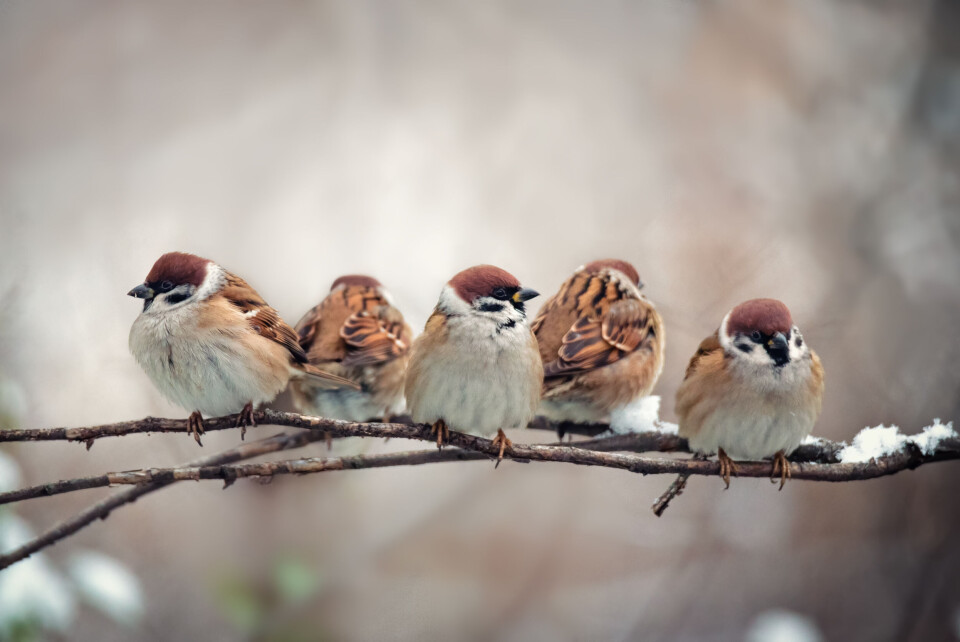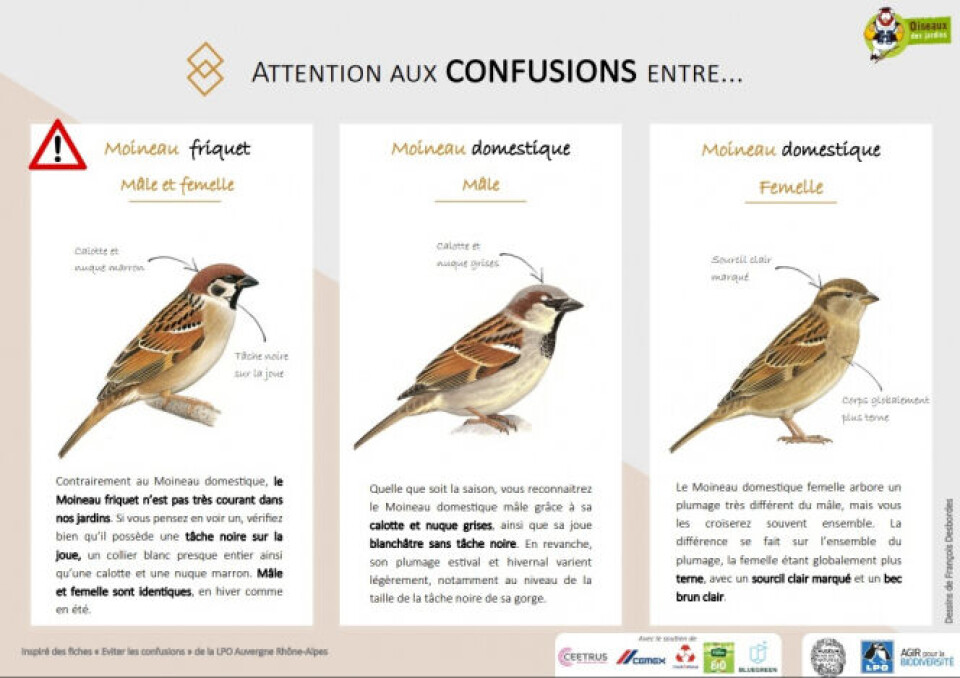-
Only a few days left to trim garden hedges in France or risk a fine
Some areas ban the practice, with the recommended no-trim period lasting until August
-
Know your cheeses and their seasons: which to eat in France in February
Cow’s milk cheeses dominate as winter comes to an end
-
Films and series to watch in February to improve your French
Every month we outline good film and TV series to improve your language
Join the 10th edition of France’s winter bird count this weekend
You can count birds in your garden, in a public park or even from a balcony with various ‘cheat sheets’ on spotting different species available online

People in France are invited to look out for birds this weekend, as the 10th edition of the national winter bird counting event takes place, in a bid to raise awareness of bird protection and biodiversity.
The event, organised by bird protection group la Ligue de Protection des Oiseaux (LPO), helps bird experts to understand why birds prefer certain places over others, and keep track of biodiversity and bird protection levels across the country.
The official weekend of the event is this Saturday and Sunday, January 29-30.
To take part, you can go to a specific outdoor place, such as your garden, a local park or even trees you can see from a balcony and count the birds you see. The rules are:
-
Choose either Saturday or Sunday
-
Count for one hour exactly
-
Only count birds that come to land, either on the ground or on a branch
-
Do not count birds that only fly over the area
-
Keep note of the species of the bird, and the number of birds from that species that you saw
-
Upload your results on the official website, oiseauxdesjardins.fr.
The event was started in 2013. It is also organised in partnership with the natural history museum le Muséum national d’Histoire naturelle.
Late-morning is a particularly good time to count “as birds are most active then”, bird expert at the LPO, Michel Toussaint, told France 3.
The initiative is a way to involve members of the public in keeping track of changes in bird populations.
In 2021, 17,260 gardens took part in the count across the whole of France. People in Normandy were most likely to take part, with 3,541 gardens, especially Calvados, with 1.095.
Bruno Lang, bird expert at the Groupe Ornithologique Normand, said: “[The initiative] allows us to see - or to confirm - trends.”
Richard Grège, volunteer organiser at LPO Normandie, said that the continued observance over several years is important. He said: “We have to be very careful when interpreting data; we must have a view over at least five years to know if a species is really increasing or decreasing.”
Species cheatsheets
The groups acknowledge that many people may struggle to tell some species apart, and have created a wide range of information sheets to help people identify different species.
It has also produced some guides to easily-confused species.
For example, the kestrel sparrow can be easily confused with a domestic sparrow, and the males and females can also look quite different.

There are also “confusion guides” to finches and bullfinches, swallows and warblers, thrushes and blackbirds, and more.
There can also be considerable fluctuations from year to year, depending on the climate.
Mr Lang highlighted the example of the Northern chaffinch, which has been a rare sight over the past few years but appears to be on the increase now. He said: “We haven’t seen it like this for more than 10 years.”
Other examples include the European greenfinch, which has become rarer in Europe. It was visible in 45% of gardens in 2013, but its presence has been dropping since 2018, and was only visible in 25% of gardens in 2021.
Common species such as the blackbird, have been doing well, the LPO said, but some species have fluctuated considerably.
These variations can often be explained by more or less severe winters, the amount of rubbish found in nature, noise pollution, or predators such as cats.
Raising awareness of biodiversity
One of the event’s goals is to raise awareness of biodiversity and the range of species visible and of the importance of protecting birds.
The presence of birds can also offer clues to the wider biodiversity of the space, including the presence of insects and mammals. This in turn helps to improve human health.
As Mr Grège explained: “It is clear that the skylark is in decline because of chemicals. The peregrine falcon had disappeared from Normandy because of DDT [dichlorodiphenyltrichloroethane, a pesticide and pollutant].”
He advised people to leave their gardens in a more wild state. "Leave the dandelions alone, they are caviar for many birds!", he said. “We are indirectly asking people to protect their birds.”
Plants such as thistles, wild clematis, dock, apple trees, or hawthorn – even on balconies – can help favour bird populations.
People are also warned against aiming to attract birds by offering bread or cake to birds. Rather than offer salty or sweet treats, it is better to give them sunflower seeds, wild grains, nuts, or specially-produced bird fat balls, Mr Grège said.
Related articles
Annual garden bird count in France this weekend
Public invited to count birds in national survey
France invited to count birds during confinement
Record participation in 2019 France-wide bird count
























